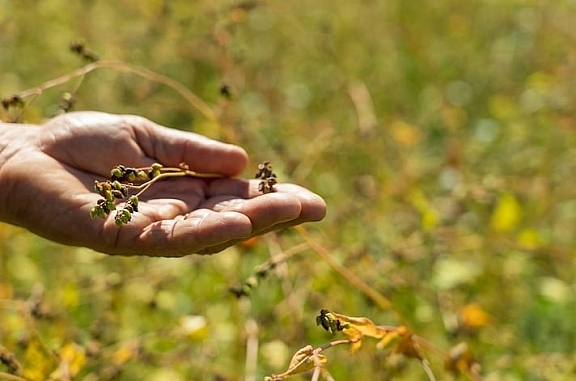The planet has an immune system too

Humans have a strange tendency to see themselves as separate from nature. Yet we know that we are part and parcel of the natural world.
Immunity provides a powerful lens for viewing this truth. Plants and animals have their own immune systems, and the planet itself can be seen as possessing an immune system. All of these can be conceptualized through a global community — or co-immunity — that works as a network of interconnected immune systems essential for the preservation of health.
The implications here are significant, and we ignore them at our peril. Without the immune benefits we get from animals, plants, fungi, microbes, and the planet itself, we’re far weaker as a species. It’s only by integrating information from this global co-immunity that we can truly thrive.
Let’s talk about immunity + nature
Immunity is how our bodies learn to protect our insides from the world outside. So by its very definition, immunity is a totally shared experience.
Each of us affects the immune function of those around us. Food, air, soil, animals, climate, microbes, plants, travel and life experiences — all of these constantly shape and reshape our immunity. In turn, the way we eat, live, work, play, and use our planet’s resources influences the immunity of our immediate environment, as well as that of our planet and everything living on it.
Train for immunity
Think of your lifestyle as a form of training. This training determines your own immune abilities, and also affects the immunity of our planet. Hopefully you don’t encounter too many toxic things your immune system can’t handle, and hopefully you don’t introduce too many toxic things into nature that it can’t handle, either.
A lot of this comes down to choices — what you eat, how you live, and what kind of natural resource footprint your choices create for you. How can we each develop effective immunity that is as healthy for our immune community as it is for ourselves? Here are a few suggestions:
- Get to know and fall in love with the nature around you. Outdoor sports, camping, gardening, hiking, and field trips are primo ways of educating immune cells, which is especially important for growing kids. For the best immune training, spend time in nature in areas where you live, rather than far away. This is where nature shares the weather and other conditions you live in, and what your local plants, animals, and microbes have learned can benefit you. In return, though, pack out everything you brought in.
- Eat local, organic, and sustainable as much as you can. Again, the foods that lived around you have mastered some of the challenges your own immune system faces, and generously share what they learned.
- Consider supplementing with nutrients that help train and rejuvenate immune cells. These can include omega-3 fats, plant nutrients such as quercetin and vitamin A, and the marine antioxidant astaxanthin. And for nature’s sake, look into the sustainability of the supplements you choose.
For a deeper dive
Check out this phenomenal article authored by pediatrician-immunologist Susan Prescott, MD, PhD and colleagues. It describes how planetary health and human immune function are intimately linked to the quality of our relationship with nature, and all the microbes we share.


